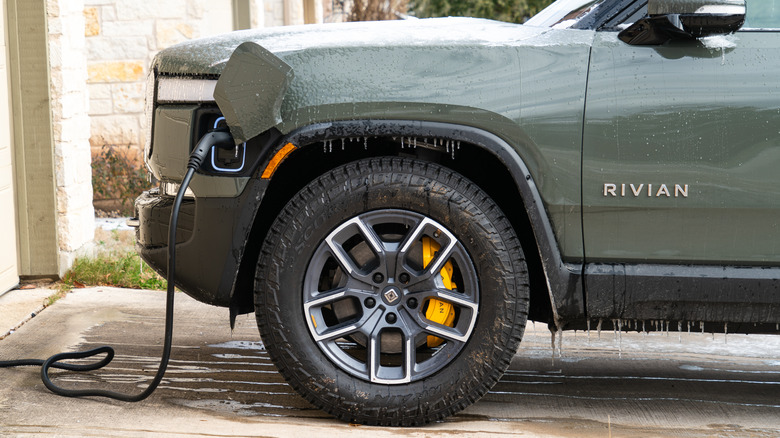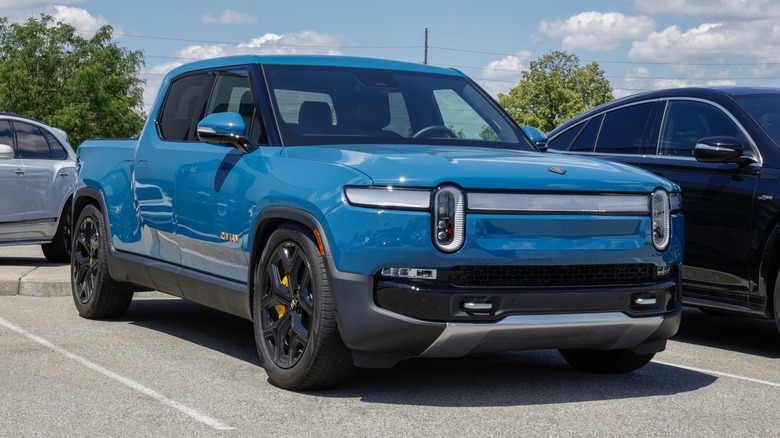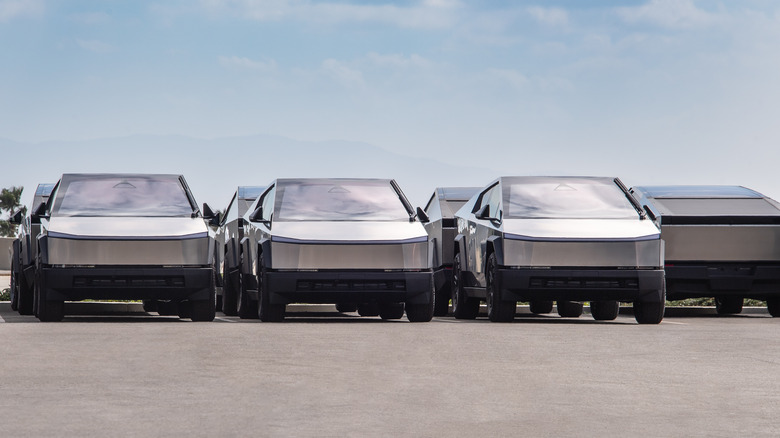Which EV Trucks Are Considered The Least Reliable, According To Drivers?
The electric pickup truck market in 2025 is rapidly evolving, with buyers now able to pick between offerings from Ford, Chevy, GMC, Rivian, and Tesla. Buyers looking to make the switch from combustion to electric power, or looking to trade in their existing EV truck for a new model, can therefore afford to be picky. A common concern among virtually all new truck buyers is reliability, but it's a metric that isn't always easy to determine.
The current crop of electric trucks is built on new platforms using new technology, and so limited data exists about their long-term reliability. It's also easy to come across horror stories from owners about most of these new trucks, but these individual stories aren't necessarily an accurate representation of most owners' experiences. However, early reports from drivers are beginning to paint a picture of how each new electric truck holds up after a year or two of real-world use. Inevitably, some trucks seem to be faring better than others when it comes to reliability, with a couple of models in particular standing out as being less reliable than their rivals.
The Rivian R1T and Tesla Cybertruck have both gained a particularly patchy reputation for reliability, with a long list of both major and minor issues flagged up by owners. Most notably, a survey by Consumer Reports saw Rivian singled out as the least reliable car brand on the market, while JD Power gave the 2025 R1T an unenviable reliability rating of 69/100.
Owners highlight many issues with the Rivian R1T
After putting 30,000 miles on the odometer of their R1T, Edmunds reported a variety of issues with their truck. The truck's tonneau cover failed and was inoperative for several months while Rivian developed a fix, and the front drive unit inverter also broke, which rendered the truck inoperable until it was replaced. The outlet also highlighted various smaller faults, including issues with the doors and loose components.
Threads on Rivian owners' forums also point to a similarly diverse array of issues, some serious and others more inconsequential. One owner reported that their truck saw three major failures in its first seven months on the road, with two of those leaving them completely stranded. If that wasn't enough, the NHTSA also lists six active recalls for the 2025 R1T at the time of writing, although some of those recalls affect only a very small number of vehicles.
The persistent reliability concerns about the R1T might be enough to dent the enthusiasm of some new buyers, but they haven't put off existing Rivian owners. Despite its troubles, Rivian took the top spot in Consumer Reports' owner satisfaction survey, beating the likes of BMW, Tesla, and Porsche. It's not difficult to see why so many owners are willing to forgive their trucks' reliability issues, as we were equally impressed with the 2025 R1T Tri when we reviewed it earlier in 2025, giving it a 10/10 score for its range, acceleration, and overall utility.
The Tesla Cybertruck also has reliability issues
Alongside Rivian's truck, another pickup that has earned a troubled reputation for reliability is the Tesla Cybertruck. Since its launch, the Cybertruck has suffered from a number of high-profile quality control issues, from metal body panels falling off to a defective accelerator pedal. A poll on the Cybertruck Owners' Club forum asks drivers how reliable their truck has been since it was delivered, and at the time of writing, only around 52% of respondents reported that they had seen no reliability issues at all. Over 30% of respondents to the poll said that their truck had needed at least one visit to a service center for repairs.
Owner reports posted on Edmunds are more positive, with drivers giving the truck an average of 4.7 out of five stars from 20 reviews. The 2025 Cybertruck is also subject to far fewer recalls than its Rivian rival, with the sole current recall concerning the previously mentioned issue with detaching metal body panels. Still, demand for the Cybertruck remains considerably lower than Tesla initially expected, which is likely one reason for the truck's worryingly poor resale values.


